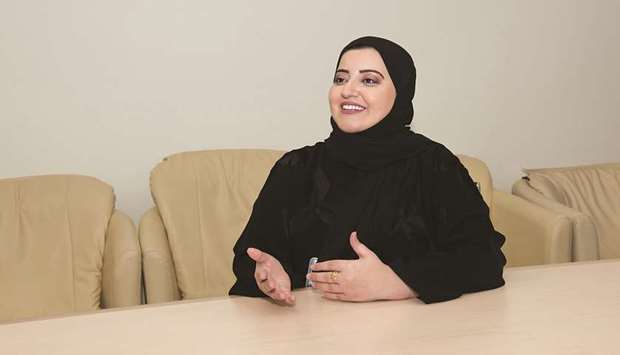Hamad Medical Corporation’s (HMC) Reem al-Saadi, director of Dietetics and Nutrition, has reminded parents and caregivers who send their children to school with a packed lunch about the importance of food safety and the risk of foodborne illnesses.
The advice comes as thousands of students have returned to classes this month after the long summer break.
“Children are among the most vulnerable to food poisoning as their immune systems are not as effective at fighting off bacteria and viruses. If your child brings a packed lunch to school, there are several ways to help ensure their lunch is both healthy and safe,” said al-Saadi.
Al-Saadi says it’s important to remember that “cold foods need to stay cold and hot foods need to stay hot”. She said that keeping food containers closed until lunchtime will help keep foods cold and help prevent bacterial contamination and growth. She recommends packing two cold sources, such as freezer packs or frozen water bottles, with perishable foods that need to stay cool.
“It is essential to keep lunches that contain perishable food items like luncheon meats, eggs, labneh, cheese or yogurt cold to avoid the development of harmful bacteria that could cause foodborne illness,” she said.
“Pack your child’s lunch in an insulated lunch bag and use frozen gel packs and frozen juice boxes or bottles of water to keep the food out of the ‘danger zone’, which is when a food’s temperature reaches between 5C and 63C (41F to 145F) and when bacteria grow most rapidly,” added al-Saadi.
If “you pack your child’s lunch the night before school”, al-Saadi recommends leaving it in the refrigerator overnight. She added that it is not advised to send hot foods like soup, salona (stew) or other heated food items in the child’s lunch, noting it is difficult to keep hot foods outside the ‘danger zone’.
“If possible, your child’s lunch should be stored in a refrigerator or cooler with ice upon arrival at their school. After lunch, make sure your child gets into the routine of discarding any leftover food, used food packaging and paper bags. Don’t reuse packaging because it could contaminate other food and cause foodborne illness,” she said.
Further, al-Saadi says lunch boxes or bags should be cleaned with hot soapy water after each use and she recommends packing disposable wipes for children to clean their hands.
She says it is important to provide children with healthy, balanced lunches that include whole grains, fruits, vegetables, lean proteins and low-fat dairy products. She also recommends preparing snack-sized bags of fruits and veggies and involving children in preparing their lunches.
“Vegetables and fruits are vital for growing children, as are milk and dairy products, and proteins from meat and eggs. If preparing sandwiches, opt for whole-grain bread and add veggies for toppings. Prepare snack-sized bags of grapes and berries and cut carrots and cucumbers. Whole fruit such as apples, peaches, pears, bananas and tangerines are also good choices,” said al-Saadi.
“It’s important to keep lunch options healthy. As tempting as it may be to pack savoury foods like chocolate bars, sweet biscuits, flavoured popcorn and chip packets, these are not healthy foods you want your kids to consume daily,” she added.
Al-Saadi says it is also important to ensure children are staying hydrated. She recommends helping children get into the habit of drinking more water by packing a water bottle with their lunch and suggests keeping it chilled overnight in the refrigerator so it doesn’t get warm during the school day.

Reem al-Saadi, director of Dietetics and Nutrition.
